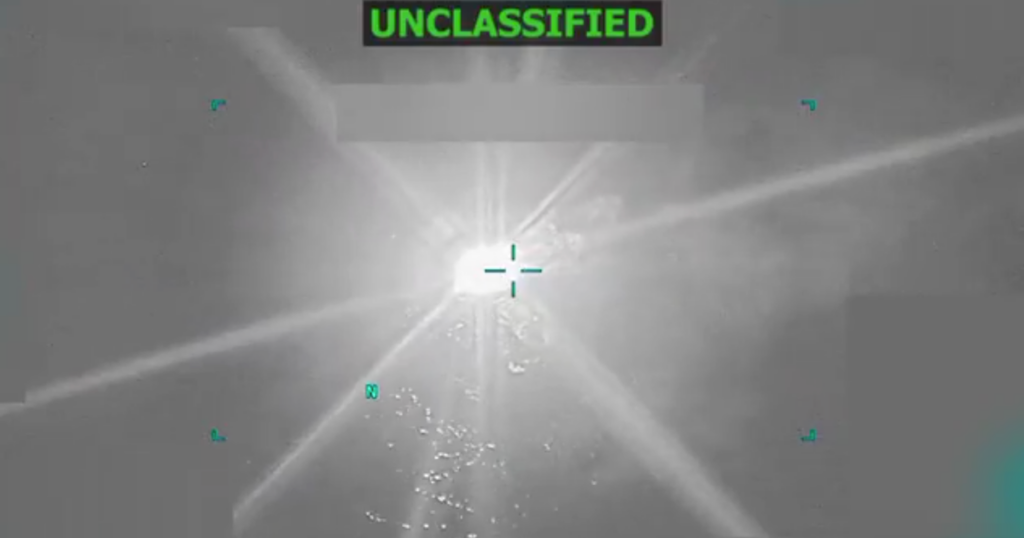In a significant escalation of military actions, the U.S. military conducted a strike on a vessel in the Caribbean Sea, confirming the presence of survivors aboard. This marks the sixth known assault on boats in the region within the past month, raising concerns about the legitimacy and ramifications of such strikes. The Trump administration has yet to disclose details of the assault, though previous strikes have been linked to alleged drug trafficking activities. The controversy surrounding these actions is intensifying, particularly regarding the U.S. government’s justification and the political ramifications at home and abroad.
| Article Subheadings |
|---|
| 1) Vital details of the attack and survivors |
| 2) Background and context of previous strikes |
| 3) Political implications and reactions |
| 4) Military operations in the Caribbean |
| 5) Responses from Venezuela and international community |
Vital details of the attack and survivors
On Thursday, a U.S. military strike targeted a boat in the Caribbean Sea, with official reports confirming the presence of survivors on board. The details surrounding the vessel and the exact number of passengers are currently unclear. This incident marks a notable shift in operations, as it represents the first known occurrence of survivors in the series of strikes against alleged drug-trafficking vessels. Responses to this incident have varied, especially given the rising global scrutiny over the U.S. military’s recent actions in the region.
Background and context of previous strikes
In the last month alone, there have been five documented strikes by U.S. forces on boats suspected of narcotrafficking off the coast of Venezuela. These strikes, resulting in at least 27 fatalities, raise important questions regarding the legality and moral implications of such actions. Reports indicate that the Trump administration has labeled these deceased individuals as “narcotraffickers,” thereby constructing a narrative that justifies the military operations under the premise of combating drug trafficking. However, the lack of transparency regarding the evidence substantiating these claims has provoked criticism from various political spheres.
Political implications and reactions
Amidst rising tensions, several lawmakers have begun to voice their opposition to these military strikes, calling for a framework of Congressional approval before any further actions against drug cartels. Critics argue that the administration has yet to provide adequate evidence justifying accusations against the individuals onboard these vessels, leading to questions about the executive authority being exercised. Tensions escalated as President Trump asserted that vessels laden with drugs are “fair game,” a comment reinforcing the administration’s hardline stance on drug trafficking and the perceived justification for military force.
Military operations in the Caribbean
The U.S. has escalated its military presence in the Caribbean, deploying eight warships alongside fighter jets and deploying around 10,000 troops to the region. Recently, American B-52 bombers conducted operations approximately 150 miles north of Venezuela’s coastline, further heightening the military buildup. This extensive show of force appears to be a strategic move aimed at pressuring the Venezuelan government, accused by U.S. officials of collaborating with drug cartels. President Trump has publicly confirmed authorization for covert CIA operations in Venezuela, emphasizing narcotics and migration as pivotal motivations for U.S. actions in the region.
Responses from Venezuela and international community
In response to the military operations, Venezuelan President Nicolás Maduro has issued strong denials regarding any ties to drug trafficking, framing the U.S. actions as unjustified aggression. Earlier this week, he proclaimed readiness to declare a state of emergency in Venezuela over what he termed “American aggression,” granting himself enhanced powers to counter any potential U.S. invasion. This assertion of sovereignty has alarmed international observers who view the risks of further conflict in the region as escalating. Meanwhile, Venezuela continues to solicit global support against what it perceives as external interference in its domestic affairs.
| No. | Key Points |
|---|---|
| 1 | The U.S. military struck a vessel in the Caribbean, marking the sixth such attack. |
| 2 | Survivors were reported aboard the targeted vessel, raising ethical concerns. |
| 3 | Previous strikes have resulted in at least 27 fatalities. |
| 4 | The Trump administration faces criticism over its military actions and lack of Congressional approval. |
| 5 | Venezuela’s government has condemned U.S. actions, claiming sovereignty violations. |
Summary
The recent U.S. military strike in the Caribbean has profound implications, revealing the administration’s aggressive approach to combat narcotrafficking while triggering significant political and ethical debates. With escalating military operations and the reported presence of survivors from these attacks, the broader ramifications for U.S.-Venezuela relations and regional stability remain uncertain. As lawmakers and international communities push for clarity and justification, the potential for conflict in the region grows.
Frequently Asked Questions
Question: What prompted the U.S. military strikes in the Caribbean?
The strikes were prompted by allegations that vessels were involved in drug trafficking, with the U.S. government framing these operations as part of a broader effort to combat narcotics entering the country.
Question: How many strikes have occurred so far, and what are the consequences?
There have been six documented strikes in the Caribbean, with at least 27 individuals reported dead from these engagements, raising ethical and political questions about the military’s actions.
Question: What has been the reaction from Venezuela regarding U.S. military actions?
Venezuelan President Nicolás Maduro has condemned the U.S. actions as unwarranted aggression, refuting accusations of drug trafficking and threatening to declare a state of emergency in response to U.S. military operations.
